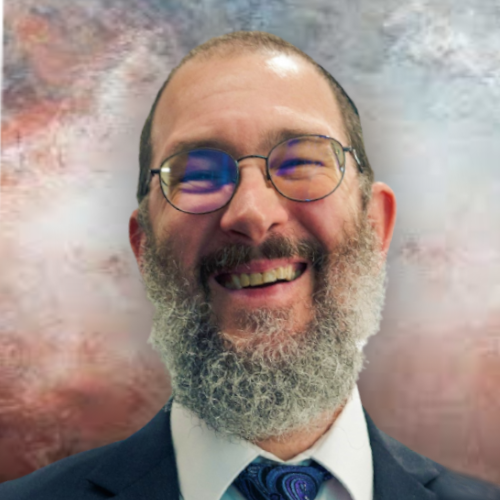
"I do wonder, Father, if you've ever lived a day in your life."
The line comes from one of my all-time favorite movies, "In Time." It's the story of Will Salas, born into the lowest social strata of a dystopian future. In the world Will knows, wealth is measured in years and centuries, while destitution brings instantaneous death from "timing out."
It's Sylvia Weis, however, who rebukes her billionaire father for his colorless life of immortality. After meeting Will, Sylvia discovers the chilling calculus that for a few to live forever, many must die.
Worse still, the super-rich live in perpetual fear of accidental death. They take no risks and therefore enjoy no achievement. They lead a lifeless existence trying to distract themselves from the emptiness of their unending days and years.
But Sylvia's father refuses to acknowledge either the injustice of the system or the cost of his own Faustian bargain. Wondering aloud how his daughter could have rejected him after he gave her everything, he gets schooled by his own wife: "You suffocate her, Philippe. You suffocate all of us."
Lack of oxygen may be the swiftest way to choke life out of the living. But the same result arrives almost as quickly from being deprived of light, both literally and figuratively — which brings us to our current entry into the Ethical Lexicon:
Etiolated (e*ti*o*lat*ed /ee-tee-uh-leyt-id) adjective
(Of a plant) pale and drawn out due to a lack of light/ having lost vigor or substance; enfeebled.
Place a plant in a dark room and its leaves lose their color. Soon they begin to droop. Before long, the plant will die.
Place human beings in an environment absent the light of joy, purpose and connection, and they, too, wither. Color drains from their countenance. Vibrance vanishes from their personality. Easy tasks become burdensome, and difficult jobs become unbearable.
Pointless, unfulfilling, unchallenging work produces a host of physiological ills, including stress, anxiety, depression, headaches and insomnia. Beyond work, similar etiolated feelings afflict those who struggle in the shadow of purpose anxiety, the sense that life itself has no meaning.
The good news is that it's almost as easy to spread the light of purposeful joy as it is to suppress it. In his timeless bestseller, "Drive: The Surprising Truth About What Motivates Us," Dan Pink describes what he calls the Tom Sawyer Effect.
Sentenced by his Aunt Polly to a day of drudgery by commanding him to whitewash the fence, Mark Twain's iconic adolescent hero brilliantly employs the power of reverse psychology. Instead of responding to the jeers of passing friends with anger or resentment, Tom extolls the rewards of work and the satisfaction of a job well done. Before long, he convinces half the boys in the neighborhood to pay him for the privilege of letting them paint the fence.
Tom is more than a master manipulator. He is a keen observer of human motivation. Remarkably, none of his friends resent him for getting them to do his work. Indeed, they actually come out ahead: Basking in the afterglow of purposeful achievement certainly provides them more pleasure than whatever idle preoccupations they might have found otherwise.
Counterintuitive as it seems, research shows that extrinsic rewards ultimately leave us less satisfied and less driven than intrinsic motivation. When the goal of any activity is payoff, the activity becomes merely a means to an end, an obstacle we need to overcome to get what we want.
When that happens, work becomes drudgery drained of all the color and fulfillment that can and should make it rewarding. Inevitably, the one doing the work becomes similarly etiolated, depleted of purpose and passion, unmotivated and uninspired.
Ethical leaders create a sense of inspired purpose and collaborative partnership that produces meaningful engagement and fosters intrinsic motivation. When we believe in our work and in the value of our lives, when we feel competent and empowered to realize our own unique talent and creative potential, we naturally radiate the light of purpose and flourish in the pursuit of a life well lived.
And if our leaders don't inspire us, it becomes our responsibility to find inspiration in ourselves.
Previously:
• When Seeking Peace, Don't Release the Dogs of War
• Greta Thunberg Sails Toward Moral Hypocrisy
• Checking More Boxes Is Not the Solution
• Why Sometimes NOT Seeing Is MORE Believing
• A Healthy Diet for the Brain Promotes Ethical Clarity for the Mind
(COMMENT, BELOW)
Rabbi Yonason Goldson graduated from the University of California at Davis with a degree in English, which he put to good use by setting off hitchhiking cross-country and backpacking across Europe. He eventually arrived in Israel where he connected with his Jewish roots and spent the next nine years studying Torah, completing his rabbinic training as part of Ohr Somayach's first ordination program. After teaching yeshiva high school for 23 years in Budapest, Hungary, Atlanta, Georgia, and St. Louis, Missouri, Rabbi Goldson established himself as a professional speaker and advisor, working with business leaders to create a company culture built on ethics and trust. He has published seven books and given two TEDx Talks, is an award-winning host of two podcasts, and writes a weekly column for Fast Company Magazine. He also serves as scholar-in-residence for congregations around the country.


 Contact The Editor
Contact The Editor
 Articles By This Author
Articles By This Author